Escape from France is a complex tale of daring and disguise, and a vivid picture of the hotbed of spies and informers that Paris became during the revolution.
With news of the revolution in France, the Careys are anxious about the fate of their relatives, the aristocratic d’Assailly family. Young Richard Carey, still a Cambridge student but already an outstanding swordsman, is sent secretly by his father Lord Aubigny on a mercy mission to bring them back to England. When he arrives at their château in Normandy Richard finds that the Marquis has already been arrested and he and his cousin Armand set out for Paris with a bold plan to spring him from the Abbaye prison.
About Ronald Welch and the Carey Novels
Ronald Welch’s Carey novels, written between 1954 and 1972, follow the fortunes of the same family from their involvement in the Crusades to their service in the First World War. Grippingly plotted and scrupulously researched, together they join up the dots of English history in a remarkably vivid and human way.
Welch was a historian who served as a Tank Corps officer in the Second World War and in 1947 became Headmaster of Okehampton Grammar School in Devon. He was, by all accounts, an inspiring teacher, and he certainly knew how to bring history alive for younger readers. You can’t finish a Welch book without having grasped such precise details as the construction of a crusader’s armour and why it was so designed, or why the longbow was crucial to the English victory at the Battle of Crécy. Most importantly they’re brilliant reads – fast-paced, colourful and imaginative, with entirely believable central characters. The Careys are a distinguished Welsh landowning family and are involved in all the great events of their times, from the plots against Elizabeth I and the Civil War to the Peninsular War, the Crimea and the Indian Mutiny.
The original editions, published by Oxford University Press and illustrated by some of the best book illustrators of their day, are now almost impossible to find and fetch prohibitive prices. We’re delighted to make these wonderful books available again, with their original illustrations, in an elegantly designed and highly collectable series.
Wolf Hall for kids: Why Ronald Welch’s novels will help your children fall in love with history
Ronald Welch, a tank commander turned schoolmaster, is one of the 20th century’s most underrated children’s writers. Like Hilary Mantel, he understood that what makes a lost epoch stick in your...
Read moreJoining the Grown-ups
Revisiting the Carey novels today, I am struck by how fresh and magnetizing they have remained, and by how much there is in these books – as there is in all good children’s literature – that...
Read moreEscape from France | The news from Paris was brief and startling . . .
The news from Paris was brief and startling. King Louis, the Queen and all the Royal family had escaped from Paris and were believed to be making for the German frontier. Already a petition had been...
Read more‘Your set was magnificent . . .’
'Dear SF, I’m delighted that you are publishing Sun of York as a complement to the original Ronald Welch Carey Novels! I loved these books as a child and now my 11 year old daughter has read them...
Read more‘A big thank you to Slightly Foxed . . .’
‘I am looking forward to receiving the set, having read my first Ronald Welch novel as a very young boy in the late 1960s leading to a life long interest in history and historical fiction. I have...
Read more




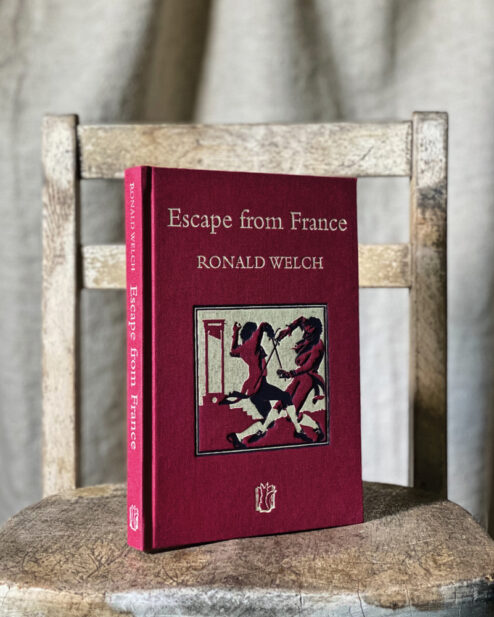
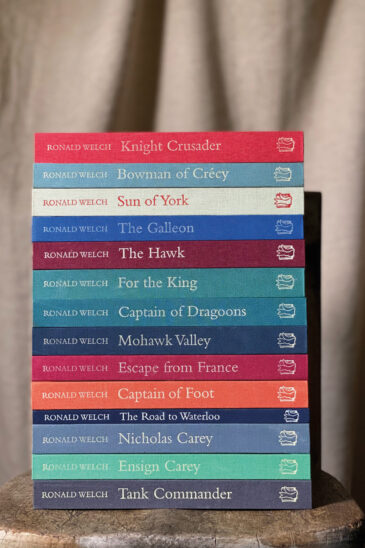
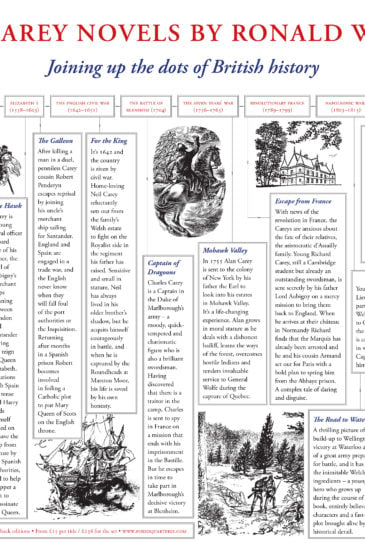
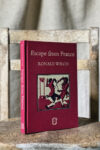
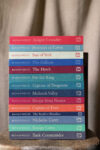
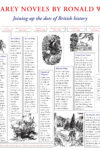
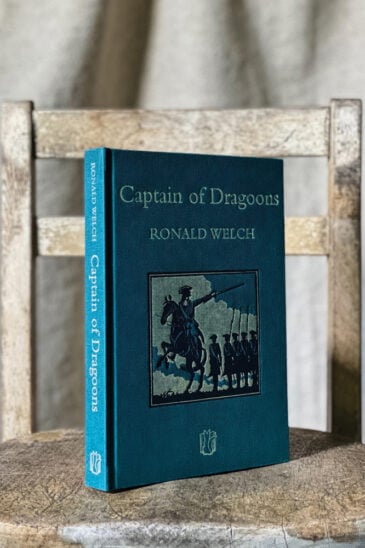
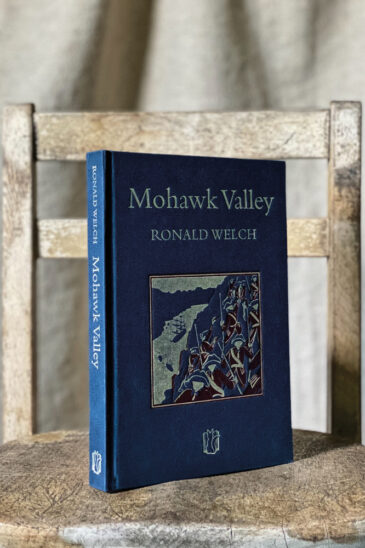
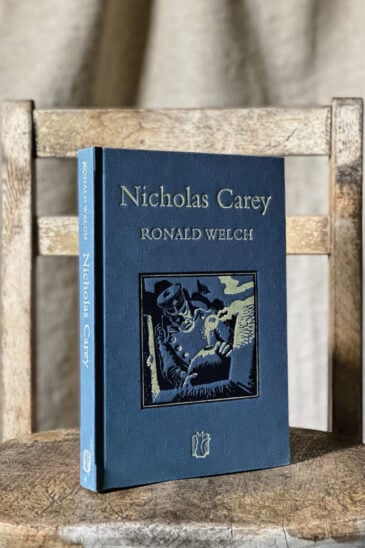
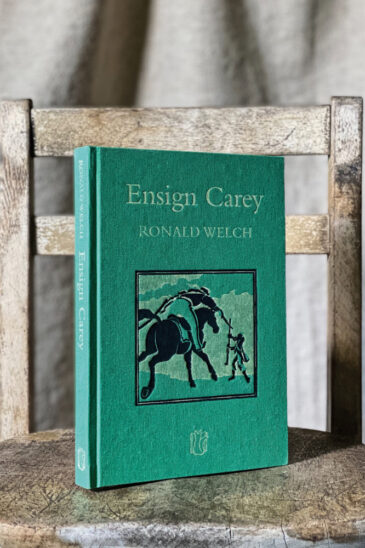
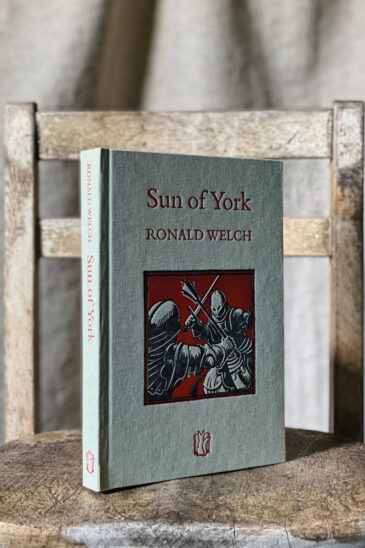
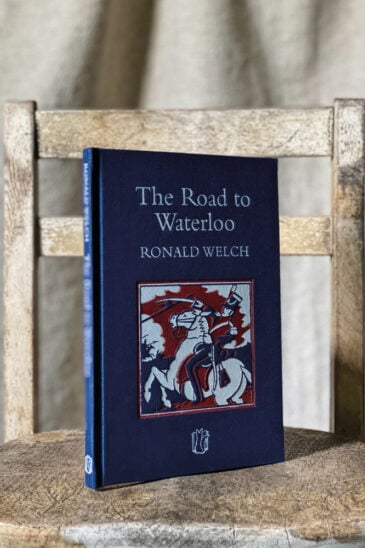
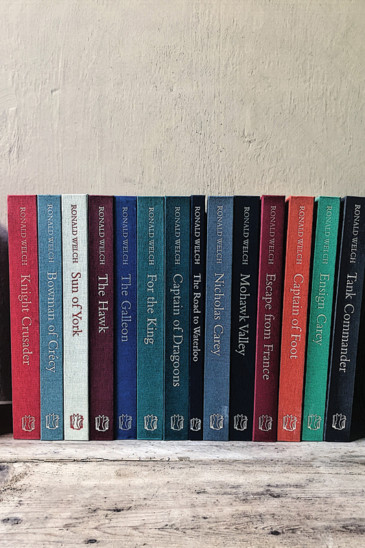
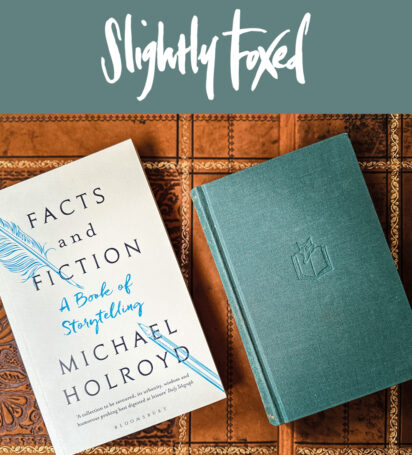
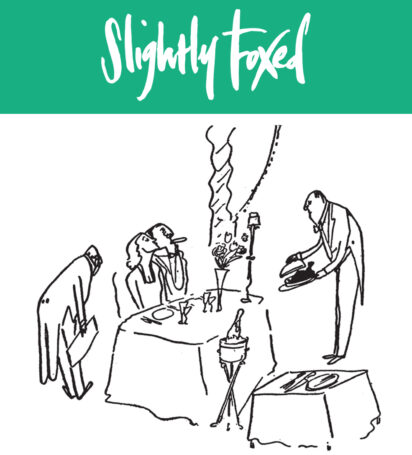
1791. Richard Carey is young, good-looking, rich – and can be shockingly rude. The only things he enjoys at Cambridge are fencing and shooting, so he’s delighted when his father, the Earl of Aubigny, summons him home to Wales. The situation in France is dangerous, says the earl. Richard is to sail to Normandy to bring back his cousins, the Marquise de Vernaye and her son, Armand, and daughter, Louise. Richard is incredulous: France is a civilized country. He imagines it will be an easy jaunt and refuses to take it seriously.
But things in France are far more dangerous than he can imagine and Richard will have to grow up fast if he is to survive – for, though he does not know it, he, too, has enemies in France. The Terror has begun and the Marquis has been arrested in Paris. First he must get the Marquise and Louise safely onto the sloop to Wales. Then he and Armand will go to Paris and rescue the Marquis. It sounds easy, but Richard will need every ounce of luck, courage and endurance, if he is to succeed.
This rip-roaring adventure goes off like a rocket; it is so exciting that, in places, I scarcely dared breathe. Welch is very good at getting across the grime, tension and unpredictability of Revolutionary Paris. It is a city ruled as much by bribery and corruption as by revolutionary law, and that means that there are also opportunities for enrichment for those not over-burdened by moral scruples.
And, as is usual with Ronald Welch, (unlike, say, G. A. Henty) women are superfluous to requirements. He is deeply attracted to his beautiful cousin, Louise; nevertheless, she gets no more than a couple of lines. William Stobbs’ vigorous illustrations perfectly complement the text. A terrific read.
Book 8 in Ronald Welch’s Carey Family Series is Escape from France, a fast-paced adventure set during the French Revolution. I first stumbled across Ronald Welch’s stirring adventure stories for boys at our local library, which still owned a few of the old Oxford University Press hardbacks, and Escape from France was one of the books I read. At the time, I considered it an exciting story, but also less substantial than many of the other Carey Family books I’d read, especially my favourite, Captain of Dragoons.
So I was interested to see what I would think of it lo these many years later, as an adult.
We meet Richard Carey at Cambridge, a capable but arrogant young man who easily deals with all the challenges that come his way–whether it’s academic study, a crooked bookmaker with a pugilistic bodyguard, or a ne’er-do-well cousin who must be rescued from his gambling debts. Meanwhile, however, political conditions are deteriorating across the channel in pre-revolutionary France. When the Careys’ distant cousin the Marquis of Vernaye is arrested, Richard’s father (the 7th Earl of Aubigny) and uncle (international hellraiser Sir Rupert Carey) commission Richard to cross the Channel to France and rescue the Marquis’s family.
Richard laughs at Sir Rupert’s wild stories and wilder advice. But once landed in France, he finds that the once most civilised nation on earth has become a more dangerous place than he imagined. To make matters worse, cousin Armand is determined not to escape until the Marquis of Vernaye can be rescued from the feared Abbaye Prison itself. In a France beset with spies, informants, adventurers, card sharks, and duellists, Richard begins to realise that Sir Rupert may not be as crazy as he thought…
This story reminded me very strongly of two other books, GA Henty’s In the Reign of Terror and (of course) Baroness Orczy’s The Scarlet Pimpernel. Indeed I’m sure there have to have been a lot of other books written about heroic Englishmen crossing the Channel to rescue French aristocrats from the Reign of Terror. Given that, it’s tempting to ask what Escape from France adds to the conversation.
In some ways, I don’t know that it tries to add much to the conversation about the French Revolution and as usual, Ronald Welch shies away from investigating too closely the ethical questions inherent in the period of history he’s writing about. The Marquis of Vernaye is said to have been kind to his tenants, while other aristocrats and the ancien regime at large are shown to have been oppressive. One thing I liked was that there are sympathetic characters and villainous characters among both the aristocracy and among the republicans, and one main character is shown to be a moderate republican who remains loyal to his country despite the Terror–I felt there was a good representation of a few different perspectives.
Ronald Welch is worth reading for two main reasons. One is the depth and accuracy of his military history, and his best books (like Captain of Dragoons and Tank Commander) tend to focus on wars. I actually missed that focus in Escape from France, which seemed a little more romantic and less grounded in tone.
There’s another main reason to read Ronald Welch, though, and that is his continual discussion of masculine maturity. Escape from France is about a young man who thinks himself competent, but has really lived a short and privileged life. It’s only when he finds himself alone and on the run in France, without any of the advantages of being an Earl’s son in England, that he begins to realise how much he has to be humble about.
Escape from France is an exciting, fast-paced adventure through revolutionary France. I enjoyed it, and I’d recommend it, together with the rest of the Carey Family series, for children and young teens. The series has been out of print for many years, and is currently being reprinted in limited clothbound editions for Slightly Foxed, so get a copy while you still can!